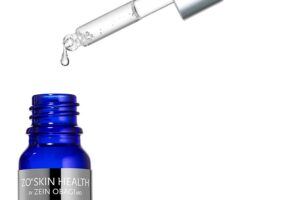Polynucleotides are the new buzzword in aesthetics and have been trending in the media in recent months. Offered as an injectable skin treatment, they are taking the aesthetics world by storm; they have become an increasingly popular solution amongst patients for treating the signs of ageing and other common skin complaints – for good reason. A service that has now been introduced at The Repton Clinic, we asked Dr. Nisha a few key questions to understand the facts behind the trend.
What are Polynucleotides?
Polynucleotides are a natural, biodegradable component predominantly derived from salmon DNA. They are made from long chains of nucleotides; the biological molecules that are the building blocks of DNA.
They are sometimes referred to as Biostimulators, Biofillers or Biorevitalisers
What do polynucleotides do?
Polynucleotides improve our skin and tissues on a cellular level. They promote deep skin renewal by inducing collagen and elastin production which help improve the structural support layer within our skin that keeps us looking youthful.
How do they work?
They create an optimal environment for fibroblast growth; essential cells for tissue repair and regeneration. The chains also attract and bind water molecules, allowing them to provide a strong moisturising effect, which can contribute to improved tissue elasticity.
In addition, they have a remarkable anti-free radical action. They counteract the skin damage which can accumulate due to various stressors, including cellular damage, stress, and exposure to UV rays, giving them a protective and cell damage reduction role.
What benefits do they deliver to patients?
Lift and tighten skin, improve the skin texture and smoothness, increase volume of the skin and help brighten the skin appearance.
What benefits do polynucleotides deliver over traditional injectable anti-ageing treatments?
Unlike injectables that temporarily plump the skin, polynucleotides have been scientifically proven to regenerate the skin from the inside at a cellular level, increasing hydration levels, collagen production, skin elasticity, and more.
Improvements in skin quality from polynucleotide treatments can be seen in just a few weeks or when combined with hyaluronic acid, results can be seen instantly.
How long do results last?
Typically, the effects of these treatments last 6 to 12 months. Regular treatments can provide more noticeable and long-lasting results.
To find out more about polynucleotide treatments at The Repton Clinic by Dr Nisha, speak to our friendly reception team.




